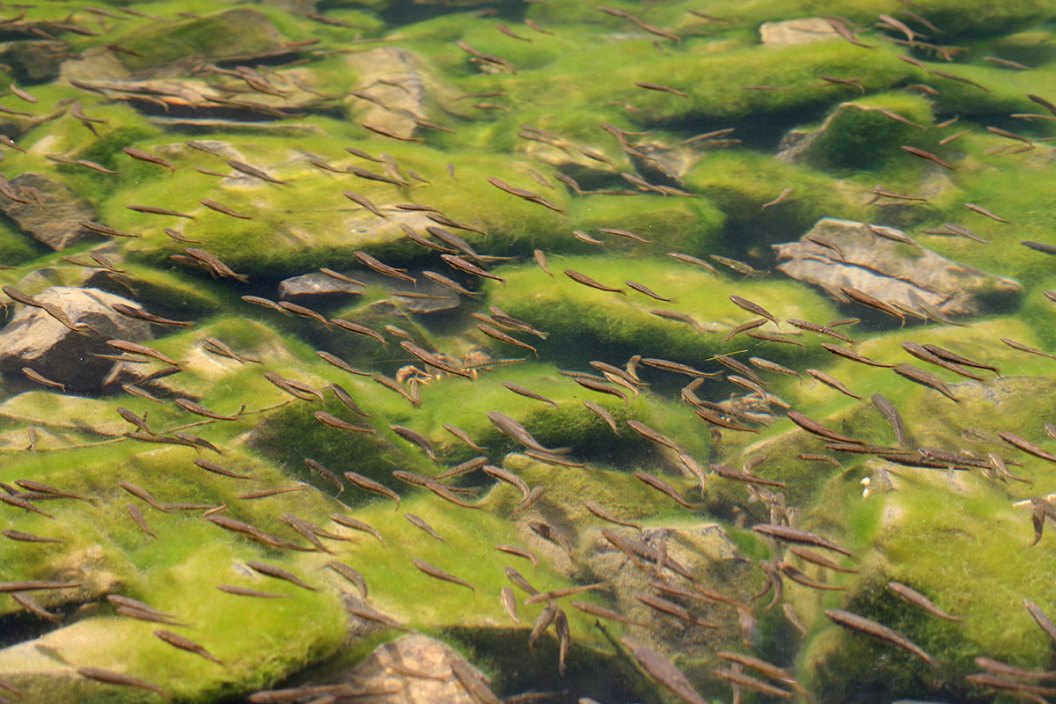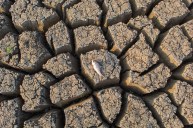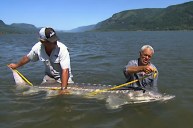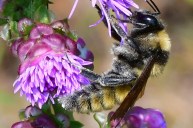Freshwater fish extinction is threatening so many species that things could get bleak without intervention.
A total of 16 different global conservation groups have come together in the effort to shed light on the fact that nearly a third of all freshwater fish species around the globe are threatened by extinction.
The "World's Forgotten Fishes" report is stating that some 80 freshwater species have already been declared extinct and missing from our precious freshwater ecosystems, with at least 16 disappearing in 2020 alone.
"...populations of migratory freshwater fish have fallen by 76 percent since 1970 and mega-fish (weighing more than 60 pounds) by a catastrophic 94 percent."
The global conservation groups that contributed to the reporting include the World Wide Fund for Nature (WWF) and the Global Wildlife Conservation. They point to a combination of obvious pressures on global freshwater fish populations including habitat decline, damming and overuse of rivers and wetlands, sources of pollution, wide introduction of invasive species, wildlife crime, and the threat of climate change.
Before any sportsmen bristle at the idea of global warming and the climate change that it is causing, let's all agree that there are species that are already missing from our waters, never to return. They just don't hold the importance that other, more high profile species hold in the eyes of anglers or conservationists.
Certainly, if we were talking about North American freshwater species such as bass, catfish, or trout, there would be an uproar and more calls for change.
Not only that, but as the WWF's Stuart Orr told NBC News, "I think this report is 16 organizations coming together to highlight on the one hand the incredible diversity of freshwater fish species, but on the other hand remind people that these species are in decline and linked to a lot of food security, jobs and cultural services."
It won't be long before freshwater gamefish populations are effected and the many combined industries that it now carries are threatened. Fishing for fun is big business around the world. Will a report like this get them to pay attention?
What Freshwater Fish Mean to the World
According to the WWF/Panda Press, "Freshwater fisheries provide the main source of protein for 200 million people across Asia, Africa and South America, as well as jobs and livelihoods for 60 million people. Healthy freshwater fish stocks also sustain two huge global industries: recreational fishing generates over US $100 billion annually, while aquarium fishes are the world's most popular pets and drive a global trade worth up to US $30 billion."
Sadly, freshwater fish species continue to be undervalued and overlooked as to their importance in the world's eye, even as these species head for the steep cliff of extinction.
As we in North America have learned the hard way, damming rivers for hydroelectric and other purposes without thought as to the consequence for the freshwater species living there can have a serious effect on their populations. Now, many states and some Canadian provinces are removing them in an effort to stop these declines and replenish healthy populations.
Remember, freshwater fish species account for fully 51 percent of the earth's fishes.
Poaching for caviar is one of the key reasons why sturgeons are one of the world's most threatened fishes there are, while critically endangered European eels are the most trafficked animal out there. Excessively high limits on salmon fishing can result in their decline right out from under our noses. That's what happened on Russia's Amur River when populations of Chum salmon declined to the point that no spawning fish were observed there in 2019.
According the World's Forgotten Fishes these are the species that have been declared extinct or critically endangered:
- Chinese paddlefish
- Ukrainian lamprey
- Giant featherback (Asian knifefish)
- 40 species of carps and minnows including the Snake River sucker, Thicktail chub, Pahranagat spinedace, Harelip sucker, Phantom shiner, Clear Lake splittail, and the Las Vegas dace. All species from the U.S.A.
- Two species of catfish, one of which is the Scioto madtom from U.S. waters.
- 14 species of trout and salmon including the Longjaw ciscoe, Deepwater ciscoe, Blackfin ciscoe, and the Silver trout, you guessed it, from U.S. waters.
- 20 other cichlids, silversides, tooth-carps, perch-like fishes, sticklebacks, and an American goby: the Utah Lake sculpin.
It's Not All Bad News
Said Orr, "The good news is that we know what needs to be done to safeguard freshwater fishes. Securing a New Deal for the world's freshwater ecosystems will bring life back to our dying rivers, lakes and wetlands. It will bring freshwater fish species back from the brink too - securing food and jobs for hundreds of millions, safeguarding cultural icons, boosting biodiversity and enhancing the health of the freshwater ecosystems that underpin our well-being and prosperity."
As a part of the angling community, we don't always agree with each other on every point, especially where the scientific collective is concerned. But we have all come together to listen to our esteemed fishery biologists when they tell us that we need to have set size and creel limits along with seasonal regulations to protect species during their most vulnerable times. Periods such as their spawning runs are especially important to protect in an effort to create long-lasting populations of our favorite and most targeted gamefish species.
Freshwater fisheries are an incredibly important part of a healthy planet and a healthy fishing industry, so much so that we have long since understood the importance of prioritizing which freshwater ecosystems need protection and restoration. More of that will be desperately needed.
Conservation Status
As a relative term, "conservation status" always seems to be a sticking point for some when it comes to our freedom to go fishing or simply enjoy the outdoors. But overfishing is not limited to commercial operations anymore. Threatened species don't just come in the form of animals that you and I may have never heard of, but for creatures we know, love, and value.
Plus, the anadromous fish species like salmon cannot be forgotten. Their time spent in freshwater is the most vital of their lives. It's important to recognize that.
Terms like risk of extinction, health of ecology, and freshwater biodiversity have become household phrases in our lifetime. They speak to the challenges of keeping freshwater habitats viable for future generations.
When species of freshwater fish begin to disappear, it's time for action. We need to forego possible habitat destruction and other ecological nightmares with serious and emergency recovery plans.
As outdoorsmen and women we have gone above and beyond our own limits in the effort to create a lasting environment where we can fish, hunt, and enjoy the outdoor world. Now we're being asked to do it again. And since no one steps up to the plate quite like us, there's just one human activity left that we can all agree on: It's time to get the word out.
For fishing gear and more, be sure to check out Bass Pro Shops.
Looking for a little more or even hot lunch for your hunting blind? Follow my webpage, or on Facebook and YouTube.
NEXT: ALDO LEOPOLD AND HIS ROLE IN THE CONSERVATION MODEL OF AMERICAN HUNTING
WATCH





